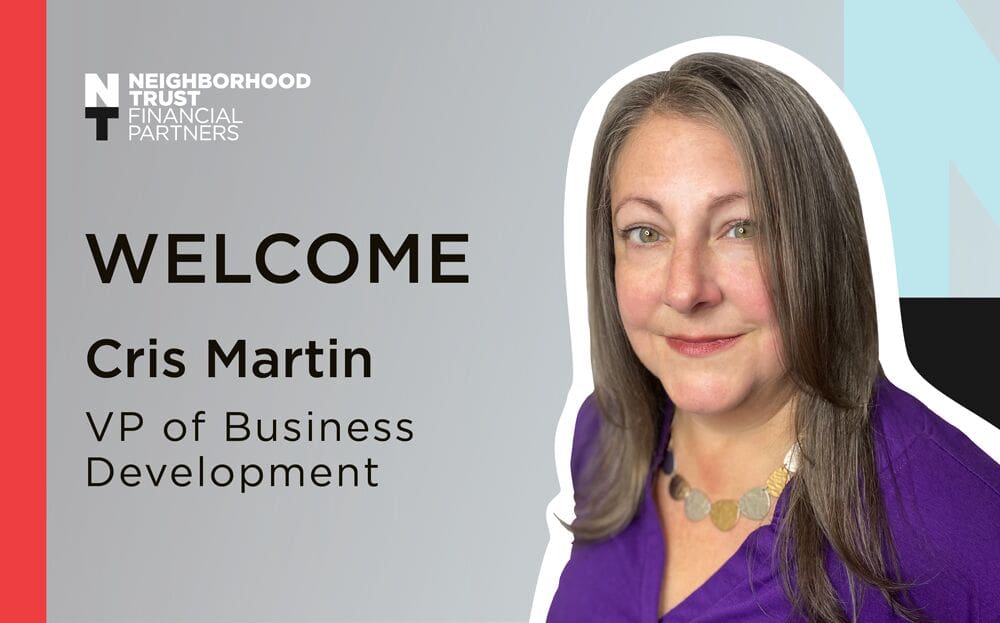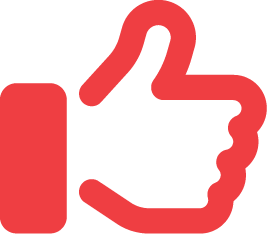
Neighborhood Trust Financial Partners is thrilled to welcome Cris Martin as our new Vice President of Business Development. In this role, Cris will lead the growth of our two in-market financial health solutions, TrustPlus and Pathways, which are sold into and seamlessly embedded within the workplace and financial services channels. Cris’s leadership will ensure an exceptional end-to-end customer experience, driving user engagement and impact for workers as we grow our user base to 20,000+ individuals on our platforms by 2025. This appointment holds particular significance for Neighborhood Trust as it aligns with our mission as a social enterprise to drive large-scale change, transforming workplaces and financial services to enhance worker financial security and mobility.
Bringing 13 years of product, distribution and operational strategic expertise, Cris joins our team with an impressive background as the former VP of Developing Markets Strategy & Head of Supplemental Program Operations at Guardian Life. In this role she excelled in consumer research, skillfully translating data into product strategies tailored for underserved communities, while fostering collaboration across cross-functional teams to drive significant sales growth. Cris’s unwavering dedication to justice, equity, and inclusion are exemplified by her efforts in challenging traditional norms to support vulnerable groups, including victims of violence, trauma, and caregivers.
During her first weeks on the job, we learned about her perspectives on Neighborhood Trust’s core values, financial advice, cognitive behaviorism, and more. Here’s some highlights from our conversation with her:
Given your background in cognitive behaviorism and your track record as a leader in driving organizational advancement, how do you envision using your expertise to enhance our work?
The most heartwarming compliment I’ve received noted my compassionate leadership and strong business sense, which speaks to my dual approach. In the business world, numbers and metrics often dominate, but understanding the human-centered side, including cognitive and behavioral decisions, is crucial. My educational background equips me with this understanding, enabling me to contribute to diverse aspects of our organization. Being both human-centered and business-minded is not mutually exclusive; it’s the fusion of these qualities that enables well-rounded, impactful decisions.
What aspects of the credit union industry or our work in collaboration with credit unions brings you the most excitement?
When I think about the credit union space, what really excites me is the alignment with Neighborhood Trust’s mission to connect with people right in their own communities. Drawing from my own background in finance, I was truly captivated by the idea of reaching individuals where they live and work. In traditional finance, solutions usually require people to seek them out, assuming a one-size-fits-all approach. However, by engaging with people within their own communities, we can provide tailored solutions that match individual needs.
How do you envision using your for-profit sector experience to drive success and innovation at Neighborhood Trust?
My journey into the nonprofit sector came from a desire to align my values with my actions. Despite having a fulfilling corporate career, I began feeling a growing misalignment as I honed my skills.This led me to search for a mission-driven organization where I could leverage my expertise to create an impact. At Neighborhood Trust, my background in corporate finance intersects with a clear vision to narrow the wealth gap.
What particularly resonated with me were Neighborhood Trust’s five core values, specifically ‘human connection’ and ‘action’. I’m someone who values action, and the emphasis on human connection within our work has been a consistent thread in every interaction I’ve had here so far, which is very inspiring.
When it comes to applying my for-profit sector experience, I see an opportunity to bridge the gap between traditional business practices and our mission-oriented approach. I envision leveraging my financial expertise to create sustainable strategies that will further advance our mission and help us make an even greater impact.
What do you think is our greatest value proposition to financial institutions and employers?
I think the most compelling value proposition of TrustPlus is its unique ability to address the current demand for financial wellness. Employers actively seek solutions in this area, and TrustPlus recognizes that technology alone cannot solve all the challenges. TrustPlus’ integration of technology with human financial coaching is a standout feature that technology alone cannot replace. The availability of a caring human coach for employees to connect with via video call or over the phone is particularly meaningful for HR professionals concerned about their employees’ well-being.
When it comes to Neighborhood Trust, its strength lies in offering multiple avenues to reach a broader range of workers, resulting in valuable insights and a more significant impact on financial institutions.
How do you spend your Sundays?
I’m a huge NFL fan, and that means my fall Sundays are reserved for watching football. It’s one of those simple pleasures that I absolutely cherish—a guilt-free day of snacking and football.
I’m a Steelers fan, which is a bit controversial here in Massachusetts. I love the team because their style of play may not always be pretty, but it’s effective. I appreciate that they never give up, even when the odds seem stacked against them. Some teams may play pretty football with beautiful plays, but the Steelers are all about taking risks. That resonates with me.
What is the best piece of financial guidance you’ve received?
Despite my background in the financial industry, I had never “saved for a rainy day” so to speak. It wasn’t until about six or seven years ago that I decided to practice what I preach and purchase a product that would safeguard my income in case of disability. Ironically, I found myself disabled due to a very serious health issue just two years later, which forced me out of work for an extended period.
The unknown in terms of impact to my future health and my family was terrifying, but the relief of not having to worry about income during that challenging period cannot be overstated. This experience taught me the importance of having a financial safety net in place. Whether it’s through insurance products, building an emergency savings fund, or other means, ensuring that money continues to cover your needs even when you can’t work is so important. This planning brought me incredible peace of mind, knowing that this aspect of my life was covered. It’s hard to put into words just how much comfort it provided, allowing me to focus on recovery and my family.




Follow Us